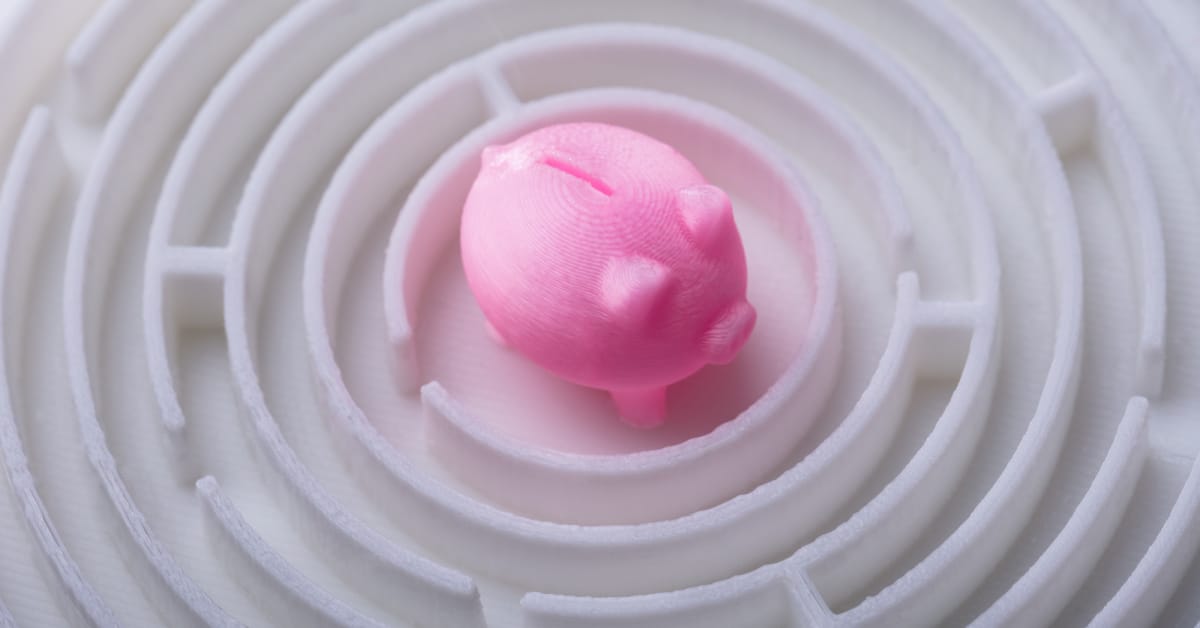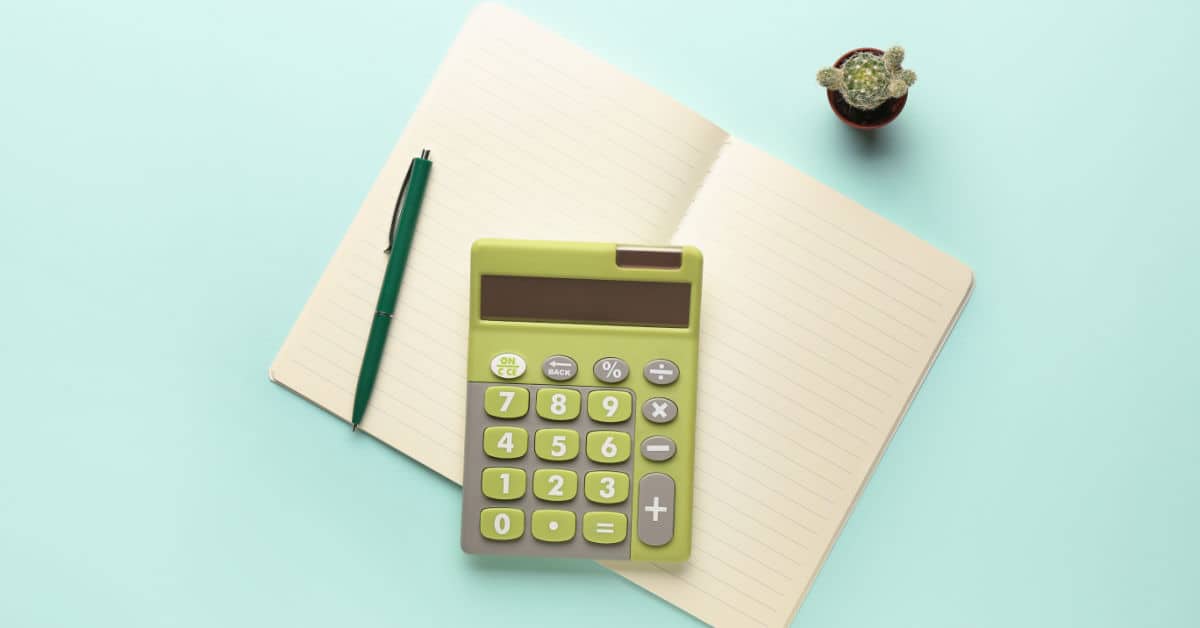(This page may contain affiliate links and we may earn fees from qualifying purchases at no additional cost to you. See our Disclosure for more info.)
We live in a world filled with alluring advertisements and seemingly indispensable products. So, it’s no wonder we sometimes buy things we don’t need and regret it later.
In a survey on buyer’s remorse, Americans attributed online shopping regrets to persuasive advertising and irresistible low prices.
Plus, most kept their regretted purchases at home – but out of sight.
We all do it. We buy things that sound and look appealing, even useful, only to have them sit and gather dust until they eventually find their way to the landfill.
You know the items we’re talking about – those forgotten objects stuffed in the deepest corners of your closets and cabinets.
Of course, it’s best to avoid purchasing these things in the first place. But how do you know which items to stop buying?
This article reveals common culprits that can cost you money and clutter your living space. We also include questions and tips to help you evaluate your purchases. So, read on if you’re ready to save time, money, and space!
Items to stop buying to save money and curb clutter
Whether it’s BOGO, free shipping, clearance, or “free” offers, sales promotions aim to get you to buy!
Yet, even if it seems like an irresistible deal, it still costs you when you don’t need it. So you spend money needlessly but also must store the item – even if you never use it.
Asking why you would buy a sale item is crucial.
Of course, it might make sense if you need, want, and actually use it. But be honest about your motivations, consider its place in your home, and ask if you’re really saving money.
Related: Is Joining a Warehouse Club Worth the Money
Single-purpose appliances and kitchen gadgets
Small appliances and kitchen gadgets are plentiful at thrift stores and yard sales. And there’s a reason for that.
Many have limited functionality, are of low quality, and get used sparingly, if at all.
Consider items like egg slicers, quesadilla makers, cupcake makers, and pizza cookers. The tasks they perform can usually be accomplished in other ways.
So, before buying these items, ask yourself a few questions.
- How often will you (honestly) use the specialized gadget?
- Is there another way to do the same task without it?
- Where and how will you store it?
Holiday decorations
The average American spends over $200 on winter holiday decorations alone. And when you factor in other seasons and holidays, the costs quickly add up!
This decor is often bulky, cheaply made, plastic, and trendy. And it only gets used a few weeks each year, if you use it at all.
That’s not to mention that it takes up tons of space and often ends up in the trash.
In other words, cutting back on seasonal decor is a practical way to save money and reduce clutter.
Related:
Trendy clothing & shoes
People spend billions of dollars yearly on new clothes and shoes to keep up with fashion trends.
But keeping pace with trends can lead to impulse buys and a stockpile of low-quality items. Plus, as trends change (and they do so quickly), unworn items sit in closets taking up space.
Instead, focus on buying timeless, high-quality clothing and shoes rather than the latest trends.
Also, consider buying secondhand or attending clothing swaps to combat spending and a cluttered closet.
Outdoor & recreational items
Outdoor items are used seasonally and often get left outside to weather.
Plastic furniture, camping gear, pool toys, grills and smokers, and sporting equipment take up space and often get thrown away.
That doesn’t necessarily mean you shouldn’t buy and use these items. But think twice about plastic or poorly made purchases and those difficult to store and maintain.
Instead, focus on high-quality items you can easily maintain and store. Or, consider borrowing or renting the things you need.
Related: Spruce Up Your Home This Year [w/o taking on debt]
Home Decor
Like seasonal decor and clothing, home decor leads to unnecessary spending and clutter. Trends change, and items get stained and broken, creating an array of useless stuff.
Home decor items to pare down to save money and clutter:
- Throw pillows
- Knickknacks
- Throw rugs
- Personalized decor
- Low-quality, cheap, or trendy items
Related: Best Ways to Furnish a Home on a Budget
Organizing containers/bins
The solution to clutter might seem like storage and organizing bins. But these solutions cost money, and you still have all the chaos – just in a different place!
You might consider a few storage bins to make finding the items you need and use easier. But buying many storage containers is often unnecessary.
A better approach is to remove items you don’t need, want, or use. Not only will this save you money, but it will also free up space in your home (and your life).
Related: What is the Best Way to Store Important Documents?
Collectibles
This category depends on why you’re buying them in the first place. If you purchase collectibles because you enjoy them—finding them, looking at them, or using them—that’s one thing.
But if you buy collectibles with the expectation they’ll increase in value over time, that’s a different story.
While some the value of some collectibles might appreciate after several years, most sit on a shelf and gather dust. And when the time comes to sell, they might not even be worth what you originally paid.
So, when buying collectibles, be mindful of your motivations. Understand they take time and money without any guarantee of recouping your costs.
Tips to stop buying unnecessary items
The above items are common things that cost money and contribute to clutter. So it’s wise to think twice before buying them.
To further evaluate your purchases, consider the following questions and tips to control discretionary spending and minimize clutter.
Questions to ask before buying an item
- Why are you purchasing this item?
- You genuinely need it
- You simply want it
- It’s cheap or on sale
- To impress others
- You’re bored or unhappy (retail therapy)
- Will this item give you long-term value, or will you only use it a few times?
- Does it fit within your budget?
- Do you have space for this item, or will it add clutter to your home?
- Can you borrow it, buy it used, or find a substitute?
- What’s the opportunity cost? In other words, what will you forego to buy this item? Is it money, time, or space?
Other tips to curb buying and clutter
- Use the 48-hour rule: Write down the item, consider its necessity, and wait 48 hours before purchasing.
- Implement a “no-credit” rule: You can only buy an item if you can afford it with cash.
- Add the item to a wish list and save for it before buying.
- Explore alternative free or low-cost substitutions for the desired item.
- Borrow or rent things instead of buying them.
- Opt for secondhand items, or use buy-nothing groups.
- Practice minimalism.
- Make a shopping list before going to the store. And stick to it.
- Use the one-in, one-out rule: For every item you buy, get rid of a similar item you own.
Related: Make Saving as Much Fun as Spending
Closing thoughts
If you’re tired of spending on things that quickly end up in the trash or donation pile, be more mindful of what you buy and your motivations.
You can save money by avoiding or reducing things that commonly lead to clutter. Also, by asking thoughtful questions and establishing shopping rules, you’ll buy less, saving time, money, and energy.
Next: Do You Have a Shopping Addiction? [How to recover]

Article written by Amanda
Amanda is a team member of Women Who Money and the founder and blogger behind Why We Money. She enjoys writing about happiness, values, money, and real estate.







Leave a Reply